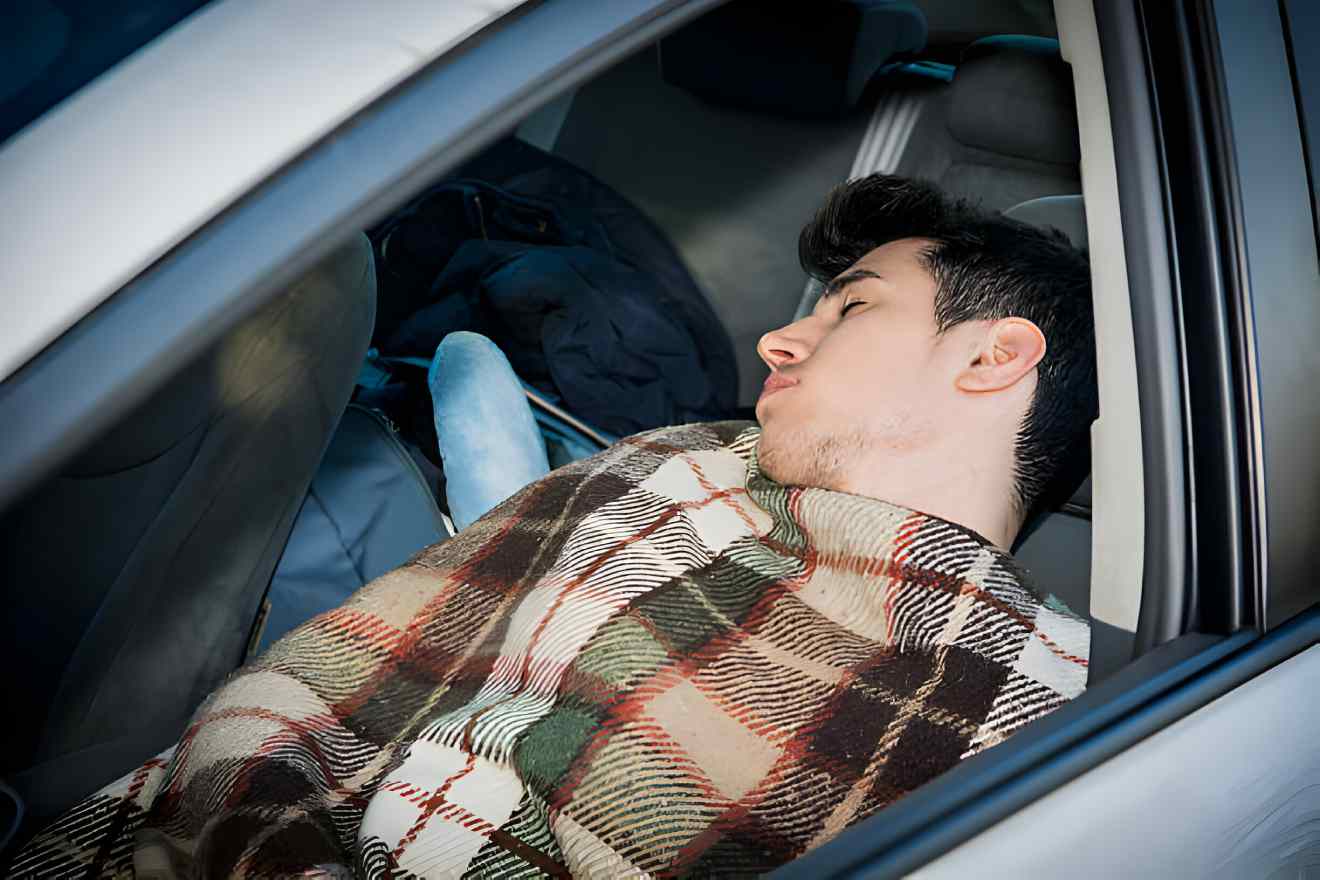The question, “Is it illegal to sleep in your car?” is not as straightforward as it may seem. The answer varies based on numerous factors, including location, the specific circumstances surrounding the act, and even the specific vehicle in question.
Read this comprehensive overview of the legality and safety considerations of sleeping in your car. That combined with insights and legal regulations from various sources.
Understanding Vehicle Dwelling Laws
To begin, it’s vital to understand that there are no federal laws that outright prohibit sleeping in your car. However, state and local laws often dictate the specifics of where, when, and under what conditions you can use your vehicle as a makeshift sleeping area.
Impact of Local Legislation
Although no federal laws prohibit sleeping in your car, many local laws and regulations may impact the legality of this practice. Laws differ greatly by area, so know your local regulations before using your car as a shelter.
Several cities have established regulations against “vehicle dwelling” to combat rising homelessness rates. For example, some parts of Los Angeles strictly prohibit “vehicle dwelling,” imposing penalties as low as $25 for first offenses, which increase with repeated violations.
Parking Laws and Sleeping in Your Car
The main concern usually isn’t sleeping in the car, but rather where and how long it can be parked on a residential street etc… Many local laws ban long-term parking in specific areas, indirectly making car sleeping illegal there. Additionally, rest stops, despite being intended for driver rest, often impose time limits, complicating the ability to sleep through the night.
Drunk Sleeping: A Unique Aspect of the Law
Another legal aspect to consider when pondering, “is it illegal to sleep in your car?” is whether or not alcohol is involved. In many states, you can get a DUI for sleeping in your car while intoxicated.
DUI laws typically focus on “physical control” of a vehicle. This means having the keys and sitting in the driver’s seat, even if the car is off.
Safety Concerns of Sleeping in Your Car
Beyond the legalities, there are numerous safety concerns and risks associated with sleeping in your vehicle. These range from potential threats to personal safety to health risks associated with long-term vehicle dwelling.
Security Risks
Personal safety and security are significant concerns when sleeping in a car. Vehicles offer limited protection and are easier to break into than homes. Furthermore, sleeping in a car often means parking in less secure locations, which can increase the risk of theft or assault.
Health Hazards
Sleeping in a car can also pose several health risks. Extended periods of sleeping in a seated position can lead to back and neck issues. Additionally, leaving the engine running for heat or air conditioning risks carbon monoxide poisoning.
Legal Consequences of Sleeping in Your Car
If law enforcement catches you sleeping in your car in a prohibited area, they may issue fines or impound your vehicle. In some cases, individuals may be arrested and charged with trespassing or other crimes, depending on local laws.
Where Can You Legally Sleep in Your Car?
While the legality of sleeping in your car can be murky, there are places where it’s generally acceptable. Researching these areas ahead of time can help prevent legal complications.
Private Property with Permission
The safest and most straightforward option is to sleep in your car on private property, with the property owner’s consent. This could include the driveways or land of friends or family members.
Rest Stops and Truck Stops
Rest stops along highways often allow drivers to rest for a certain period, typically ranging from a few hours to a full day. Truck stops also often permit overnight stays, although they may require a fee.
24-Hour Retailers and Campgrounds
Some 24-hour retailers, such as Walmart, may permit overnight parking in their lots, although this policy varies from store to store. Campgrounds and RV parks are also a good option, as they typically provide amenities and are equipped for overnight vehicle stays.
Tips for Safe and Legal Car Sleeping
Here are tips for safely and legally sleeping in your car:
- Do Your Research: Always check local laws and regulations before deciding to sleep in your car. What’s legal in one city or state may not be legal in another.
- Choose Your Spot Wisely: Choose a safe and legal place to park. Well-lit areas with other cars around are typically safer than dark, isolated spots.
- Keep a Low Profile: Avoid drawing attention to yourself. Keep the interior of your car neat and don’t display valuable items.
- Be Prepared: Have essentials like a blanket, pillow, water bottles, and a portable phone charger on hand. Always have a backup plan in case your chosen location turns out to be unsuitable.
- Practice Good Hygiene: If you’ll be sleeping in your car for more than one night, find locations where you can shower and take care of other personal hygiene needs.
The answer to whether it is illegal to sleep in your car is complex and depends on numerous factors. With careful planning and understanding of local laws, using your car as a temporary shelter is feasible. Prioritize safety and legality, and consider alternatives when possible.

